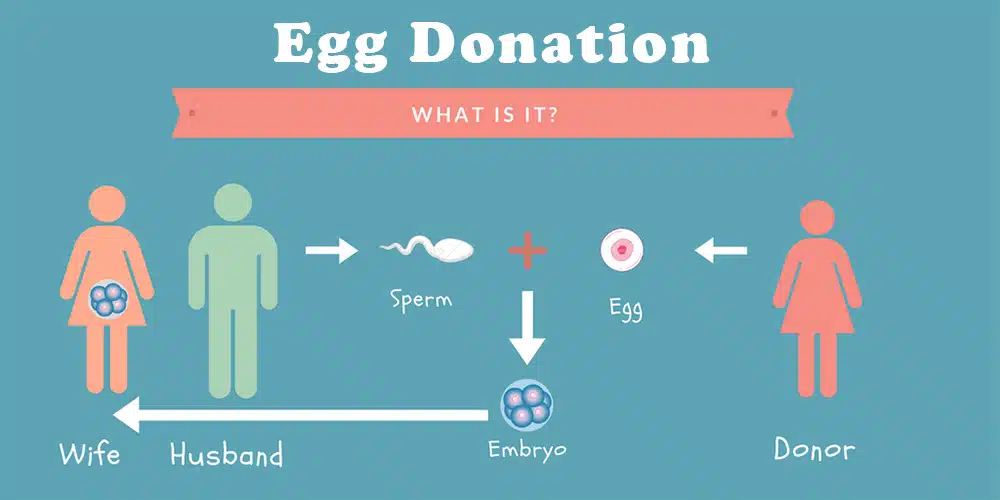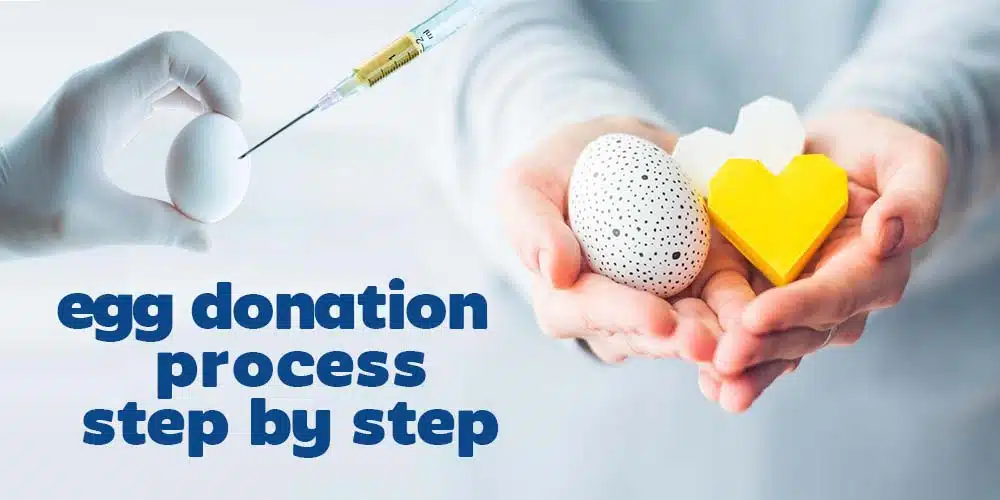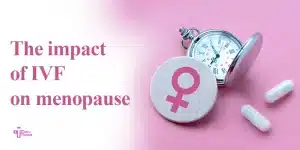
Egg Donation Process
Consultation:
the first step in this process is consultation which can be both physical and psychological. An expert physician has to evaluate the couples’ reproductive options and help them understand all aspects of each option. If they decide to proceed with the egg donation process, the doctor will talk about the things that the intended mother needs to do in order to get prepared for the pregnancy. The psychologist also discusses about their plans for egg donation and the decisions that they may face in the future. The most essential step in egg donation process is to select a reputable fertility clinic that specializes in egg donation and/or embryo donation services, like TebMedTourism agency as the best IVF clinic in the world in 2023. The clinic you choose should be experienced with performing IVF cycles with donor eggs and offer comprehensive services including counseling, genetic screening, psychological evaluation, legal documentation, etc.
Cycle Preparation:
Next, prospective egg donors are typically interviewed by a mental health professional that evaluates the donor’s psychological and emotional health as well as assesses their suitability for egg donation. Once the clinic approves an egg donor, they can begin the screening process. This typically includes medical history forms, physical exams (including hormone testing), ultrasounds, infectious disease testing, genetic screening, genetic karyotyping and more. What is genetic karyotyping? Karyotype testing for the infertile couple could be incredibly helpful information that enables your doctor to identify the source of your issue. Chromosomal abnormalities, an underappreciated and relatively common cause of infertility, can be identified by karyotyping. For detecting genetic diseases like Cystic fibrosis, Tay-Sachs disease and Sickle cell disease; that couldn’t be detected by karyotyping, the fertility specialists will offer PGD/PGS/NGS via your IVF procedure. These tests highly increase the rate of successful IVF pregnancy!
Selection of Donor:
After completing the genetic screenings and mental and psychological evaluations, the intended parents can select an egg donor based on her characteristics such as physical appearance, ethnic background, intelligence levels, educational achievements and other criteria. Choosing a donor is the most exciting and challenging decision of the egg donation process. If you are undergoing the process through an agency, you probably have experts to help you during the decision. You can review the donors’ profiles to get all the information you need about their medical and personal backgrounds. Once you have chosen the donor, the coordinator will check if she is free to go through the egg donation process during your requested time.
Synchronization:
In this phase, the donor and recipients’ cycles have to be synchronized so that the recipients’ uterus got ready to host the embryo after the egg retrieval and fertilization of the donor’s eggs. For this aim, the birth control pills might be used. When the cycles are synchronized, the donor takes some medication to simulate growth of her eggs and be monitored by sonogram and blood test for about 10-14 days until the eggs are ready to be retrieved. Meanwhile the intended mother also takes medications to make her uterine lining ready to host the embryo.
Egg retrieval and Transferring the Embryo:
After the eggs of the donor are mature and ready, they will be retrieved by a fairly simple procedure. The doctor will use a probe with a fine needle under the guidance of ultrasound while the donor is sedated. Feeling some cramps and discomfort or vaginal bleeding can occur after the egg retrieval process. The process may need a half-day hospitalization before going back home. On the day of egg retrieval, intended father or a male donor will give a sperm sample for insemination. Usually after 3 days the embryos are ready to be implanted into the uterus, so the intended mother needs to go to the IVF clinic for transferring the embryo or embryos. When you’re considering egg donation as part of your family-building journey, then you know how important it is to make the right choices. It is interesting that we point to this vital key that opting for fresh eggs in egg donation process can significantly improve your chances of a successful live birth. Research has shown that fresh eggs are associated with a 16% better chance of live birth compared to frozen eggs and a 10% higher odds for good outcomes.
How long does the process of egg donation take?
According to the above procedures, the answer to this common question “How long does the process of egg donation take?” is about three to four weeks. That time is consumed for screening procedures before donating, which includes an ultrasound examination of the ovaries, lab blood tests, genetic testing via karyotyping tests, and a meeting with a reproductive psychologist.
How to prepare for egg donation process?
• Getting ready for an egg donation process! Stop using tobacco products. If you currently smoke or use tobacco products, you must break the habit. Before you are accepted as a donor, you need to wait for a short while. The potential donors are examined for cigarette use. This advice isn’t only for the egg donor but also for the intended mother that wants to expand her family by using a donor egg via IVF+ egg donation procedure! • Keep up healthy eating habits and a healthy diet. Being an egg donor requires proper nutrition, which is essential. Being in excellent health means being best equipped to have an excellent egg donation cycle for the intended family. Eating balanced meals and a few nutritious snacks constitutes a healthy diet. The other side of this equation is the intended mother, that is better at being on an appropriate diet like the egg donor and preparing her body for the ET process. Obeying healthy diets like the Mediterranean diet will increase the success rates of the first cycle of IVF. • Maintain a consistent workout schedule Physical fitness is required of egg donors. You are not required to have a low body fat percentage or to be extremely lean. Instead, it means that three to four times per week, you should engage in some kind of intense exercise for at least thirty minutes.
Step by step Egg donation process by TebMedTourism
At the end of this article, Step by step Egg donation process by TebMedTourism, is given at a glance: 1. Pre-Operative Procedures • Sending the profiles of screened egg donors to intended parents (around 1 month prior to travelling date). • Choosing a donor according to intended parents’ desired features (general appearance, height, weight, age, educational level, skin type, eye color, etc.) For women (both the egg donor and the recipient): • General, viral & hormonal lab test • Uterine & ovaries ultrasound by radiologist For men: • Viral lab tests (hepatitis B & C, HIV, VDRL) • Sperm Analysis 2. Menstruation Cycle of the Egg Donor: Day 1: • Doctor’s visit • Ultrasound in clinic by a fertility specialist • Determining the treatment plan • Prescribing the drugs (dosage may vary depending on age, weight, & height of the donor) Day 2: • Start taking medication & continue until the day 8 Day 8: • Ovaries ultrasound at clinic to check the size of follicles. • Adjusting the dosage of medications Day 11: • A clinical ultrasound for final checks • Determining the exact day of egg retrieval Day 14 to 16 (depending on ovaries response to drugs): • Egg retrieval • Sperm collection from the intended father • IVF/ ICSI Day 14-17 (depending on the egg retrieval day) • Embryo growth in lab environment Day 17 • Embryo evaluation • PGD/PGS on the third day of embryo growth (in case of need) Day 17-18 • Embryo transfer to the intended mother’s uterus Day 31-32 • pregnancy test and repeat it after two days 3. Menstruation Cycle of the recipient: Day 2 • Clinical ultrasound • Planning the medical treatment • Start using the medications from the second day of menstruation cycle to prepare the uterus for hosting the embryo. Day 2 to 10-14 • Multiple ultrasounds every 2 days to check endometrium diameter and adjusting the medications dosage Day 10-14 • embryo transfer (depending on the condition of uterus and preparation of the embryos) Note 1: For egg donation process, couples should stay in Iran for 2 weeks to take the tests, and using the medications (egg donation in iran ). However, TebMedTourism team can shorten the duration of your stay to 1 week so that under the supervision of our doctors, you could start your medication in your home country and come to Iran for sperm collection, uterus final evaluations, and embryo transfer. Note 2: we recommend you to fully rest after the embryo transfer for at least 1-2 days before going back to your country.








